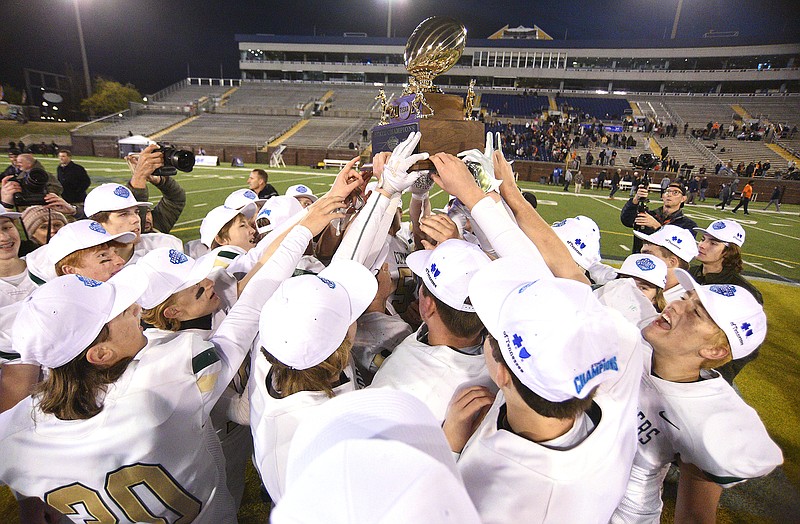For the most part, administrative meetings of the Tennessee Secondary School Athletic Association are the sports equivalent of sitting through monotone insurance seminars. Every so often a ruling will raise an eyebrow because of its significance, but rarely are there groundbreaking decisions that reach outside the world of those who closely follow high school sports.
Thursday's legislative council meeting in Murfreesboro provided one of those rare earthshaking moments when its 12 members voted unanimously to allow prep athletes to begin profiting from their name, image and likeness without affecting their eligibility.
Not since the TSSAA voted in favor of the public-private split in 1996, creating Division II, has there been a decision that was felt across such a statewide level, changing the future landscape of high school sports in Tennessee.
The rule change was approved to begin immediately, and teenage athletes wasted no time in taking advantage of their newfound freedom to cash in. The first deal was announced on social media less than an hour after the TSSAA rule was passed, and dozens more have followed since.
According to the way the rule amendment is written, student-athletes are cleared to be paid for anything from appearing in business ads to giving private instructional lessons so long as they don't wear their school team's uniform or any other clothing with their team's logo, or mention any accomplishments earned as part of their school's team (championships, awards won).
The reason TSSAA officials decided this was the right time to make Tennessee the 20th state to allow NIL deals — neither Georgia nor Alabama are part of that list — was to avoid any potential lawsuits that were almost certain to arise in time.
Mark Reeves, who took over as executive director of the TSSAA this year, explained shortly after Thursday's meeting that in discussions with directors from other high school associations, he learned several of the states that do not currently allow student-athletes to profit from their name, image and likeness have had lawsuits brought against them.
"It was more than likely that litigation would've come into play, potentially," said Reeves, who went on to explain that by being proactive, the new rule allows the TSSAA to set early parameters for NIL deals and tweak the new rule as the inevitable issues arise along the way.
The most glaring of those likely to arise is one that is as old as high schools sports itself: recruiting.
"The buzz for NIL deals started when colleges passed their ruling to allow it at their level," Reeves said. "For the last year, there has been increasing conversations about it at our level among other state associations.
"What we're seeing from other states who have dealt with this is is that it can be an avenue for more undue influence to be placed on some student-athletes or their families to transfer or play for specific programs. That is one potential issue, but that is something we will deal with as we go along."
But for anyone who thinks NIL deals will suddenly open the recruiting floodgates, just know that public and private schools alike have found ways around recruiting rules for decades, and this will be no different.
So while there will almost certainly be instances where high school boosters use the ability to broker financial deals worth thousands of dollars in order to entice a star athlete to transfer into the program they support, that is small potatoes compared to the potential of college programs using the new rule to reach down into the prep ranks and offer hundreds of thousands or even millions of dollars to place recruits into specific prep programs where they can keep a closer eye on them.
And that will be the bigger issue that could potentially erode whatever remains of the purity of prep sports.
Or as one college football assistant explained this past week: "I definitely believe you'll see high school players being told they'll be paid if they transfer closer to the college they commit to. That's coming. After this high school NIL ruling, with the exception of the kids who aren't college prospects, there is no such thing as amateur sports anymore."
Contact Stephen Hargis at shargis@timesfreepress.com or 423-757-6293. Follow him on Twitter @StephenHargis.
